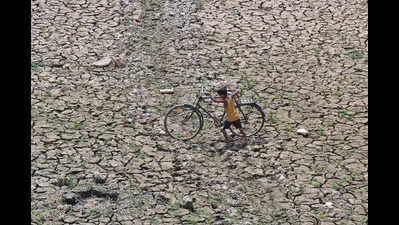- News
- City News
- guwahati News
- IMD’s ‘below normal rainfall’ forecast raises concern in NE
Trending
IMD’s ‘below normal rainfall’ forecast raises concern in NE
Guwahati: IMD's forecast of "below normal rainfall" for northeast during the upcoming monsoon season (June to Sept) has sparked apprehension among agricultural communities across the region. The prediction has also triggered concerns about soaring maximum temperatures during the summer months.
Farmers, who heavily rely on the monsoon for their cultivation, are particularly cautious about the potential impact on their harvests and overall agricultural productivity.
IMD, in its "Long Range Forecast for the Southwest Monsoon Seasonal Rainfall 2025" released on Tuesday, stated that northeast, Tamil Nadu, and parts of Bihar are expected to experience below normal rainfall. In contrast, most other regions, including the critical "monsoon core zone", may get "above normal" rainfall.
An environmentalist from Guwahati, speaking anonymously, said the "below normal" rainfall will lead to a rise in maximum temperatures, making the summer more unbearable and severely affecting the agricultural sector. "This is a sign of climate change and its effect. Without collaborative efforts to protect the environment and preserve tree cover, such adverse conditions will only worsen," the environmentalist added.
According to Assam govt statistics, the state experienced an annual average rainfall reduction exceeding 10 mm between 1990 and 2019 due to climate change, leading to drought-like conditions in several districts.
In response, the Assam Climate Change Management Society (ACCMS) launched eight studies to evaluate climate change impacts across multiple sectors. These include research on groundwater levels in the northern piedmont plains, climate resilience in the tea industry, and green budget tagging for government schemes.
The Assam Science Technology and Environment Council has also initiated measures to combat climate change. These include establishing environmental cells in 40 collegiate institutes and conducting awareness programmes. Additionally, the state govt adopted the Vehicle Scrappage Policy in 2022, resulting in the decommissioning of approximately 3,500 vehicles exceeding 15 years of service.
End of Article
FOLLOW US ON SOCIAL MEDIA











